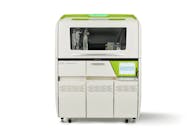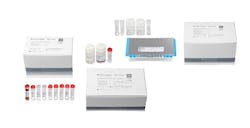Theranos’s past—and current—problems have been well-documented. The company’s claim that it can perform multiple tests using a few drops of blood has been challenged by investigative reporting and by the Food and Drug Administration (FDA). Federal regulators have barred Holmes from operating a lab for at least two years, and the license of Theranos’s main lab has been revoked. Theranos is also under a criminal investigation; the Securities and Exchange Commission (SEC) and the U.S. Attorney’s Office for the northern district of California are both looking into whether the company misled investors. In June 2015 Theranos voided all test results that had been collected via its proprietary Edison technology, a tacit admission that concerns about its accuracy were valid.
Whatever weight one gives to Theranos’ various travails, what once looked like the ultimate scientific start-up has been badly tarnished by events. Some of the early doubts about Theranos—the questions about whether the company could or ever would provide evidence that its approach works—seem justified, at least for now.
In that context, Holmes spoke directly to the assembled scientists at AACC, and her strategy soon became apparent: The best defense is a good offense. Rather than dwell on Theranos’ difficulties, Holmes seemed to redefine the company; going forward, it would focus less on being a testing lab and more on being a provider of medical testing technology. Specifically, Holmes presented Theranos’ research in developing novel technologies for the collection and processing of small-volume venous and capillary blood samples on a compact, fully integrated, and automated diagnostic testing platform.
In her address, “The Miniaturization of Laboratory Testing,” Holmes outlined Theranos’ approach to miniaturizing analytical testing equipment across different testing methods, including hematology, immunology, clinical chemistry, immunochemistry, and nucleic acid amplification, and integrating those methods into a single platform, known as the Theranos Sample Processing Unit, or “miniLab.”
The company’s testing system is comprised of the miniLab sample-processing unit along with software, called the Theranos Virtual Analyzer (TVA), which will enable remote operation of the unit through a bi-directional connection. Together, this integrated platform is designed to process small capillary whole blood and plasma samples using the company’s capillary blood collection devices, the Sample Collection Device (SCD) and Nanotainer tubes.
Holmes also presented topline performance results for the miniLab platform and results on the performance of capillary blood samples on a sampling of assays on the miniLab. She presented 16 studies on miniLab performance data across a sampling of testing categories and methods. (The technologies covered in the presentation have not been cleared or approved by the FDA and are not for sale in the United States.)
The mood in the hall was polite but skeptical, and comments heard in the hours and days after Holmes’ address were guarded. It was pointed out that there has still been no independent verification of the clinical data provided by Theranos, and that most of the data was derived from studies involving venous blood, rather than the blood from capillaries in the finger. One of the formal respondents, Stephen R, Master, PhD, of Weill Cornell Medical College, said of Holmes’ claims that multiple tests could be run from a few drops of blood: “The evidence that you presented fell far short of that.”
Many challenges lie ahead for the Theranos makeover. The miniLab still uses the Edison technology. The company will still need FDA approval going forward. It will be interesting to see if Theranos can successfully reinvent itself.






